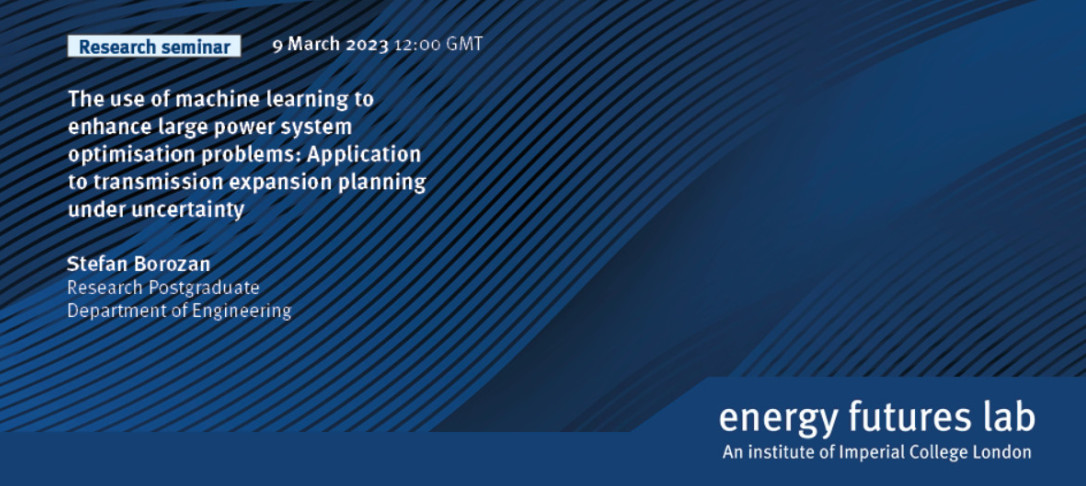
The use of machine learning to enhance large power system optimisation problems: Application to transmission expansion planning under uncertainty
Machine learning (ML) techniques are becoming increasingly popular in power system applications, especially in those where computational times are of critical importance and where existing approaches are difficult to implement or do not exist at all. However, there are problems that don’t require a quick solution and/ or must be solved to optimality, which ML does not guarantee. So are ML methods “completely useless” in such cases?
This research explores an alternative use of ML in power system applications: to enhance well-established optimisation-based methods that typically suffer from the curse of dimensionality. It presents an integrated ML-Benders decomposition algorithm, which is applied on a large multi-stage stochastic expansion planning problem. The results show that the proposed method successfully classifies the effective Benders cuts and disregards ineffective ones, thereby managing the problem size as it grows over iterations. This demonstrates how embedding ML can improve scalability and push the tractability limits of a given optimisation problem.
Biography:
Stefan Borozan is a doctoral researcher in the Control and Power Group working on power system planning under uncertainty with the aim to facilitate the shift to a net-zero electricity sector. Specifically, he focuses on multi-stage stochastic optimization approaches for decision-making, as well as on modelling and Option Value quantification of smart investment alternatives, such as Energy Storage, EV smart charging, and Vehicle-to-Grid.
Some of Stefan’s other research interests include system resilience, reliability, TSO-DSO coordination, and electricity markets and policy.
Stefan is currently the Chair of the Imperial College IEEE Student Branch and part of the Communications Team at CIGRE UK Next Generation Network.
About Energy Futures Lab
Energy Futures Lab is one of seven Global Institutes at Imperial College London. The institute was established to address global energy challenges by identifying and leading new opportunities to serve industry, government and society at large through high quality research, evidence and advocacy for positive change. The institute aims to promote energy innovation and advance systemic solutions for a sustainable energy future by bringing together the science, engineering and policy expertise at Imperial and fostering collaboration with a wide variety of external partners.